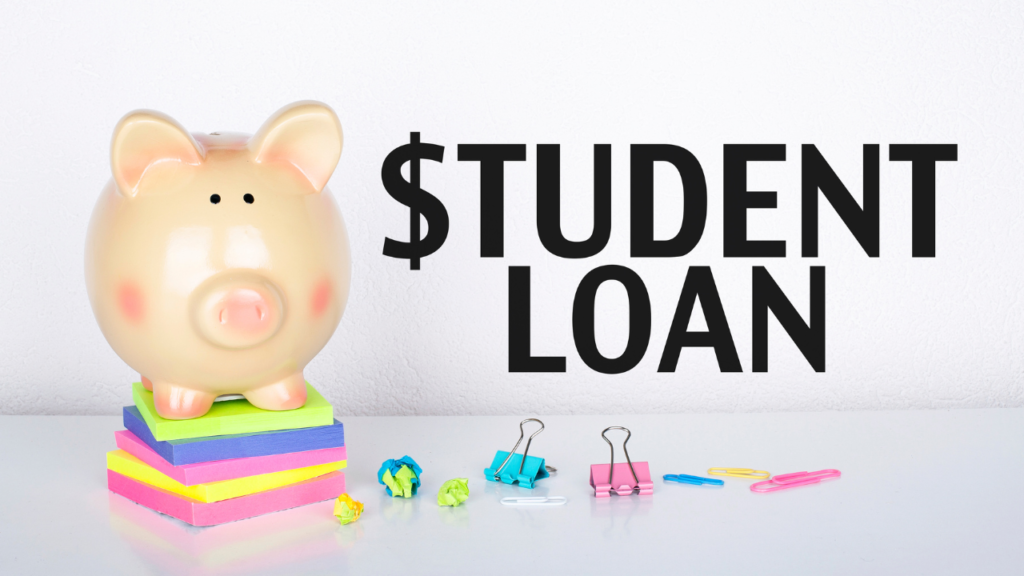Student loan debt has become a significant issue for millions of Americans, with more than 45 million borrowers collectively owing over $1.7 trillion in student loans. This financial burden can substantially impact a person’s economic well-being, often leading to a delay in other life goals such as purchasing a home, starting a family, or saving for retirement.
One way to alleviate the stress of student loan debt is by paying off student loans early; This means making additional payments towards the principal balance of the loan, which can reduce the overall interest paid over time and help borrowers save money in the long run. There are several benefits to paying off student loans early, including:
Table of Contents
ToggleReducing the Total Cost of the Loan
By making extra payments towards the principal, borrowers can reduce the overall cost of their student loans because the additional payments go directly toward the principal balance, reducing the interest amount that accrues over time.
Improving Credit Score
Paying off student loans early can help improve a borrower’s credit score. By reducing the amount of debt owed, borrowers can improve their credit utilization ratio, which is a key factor in calculating credit scores.
Achieving financial freedom
Paying off student loans early can provide a sense of financial freedom and reduce the stress associated with debt; This can enable borrowers to focus on other financial goals, such as saving for retirement or purchasing a home.
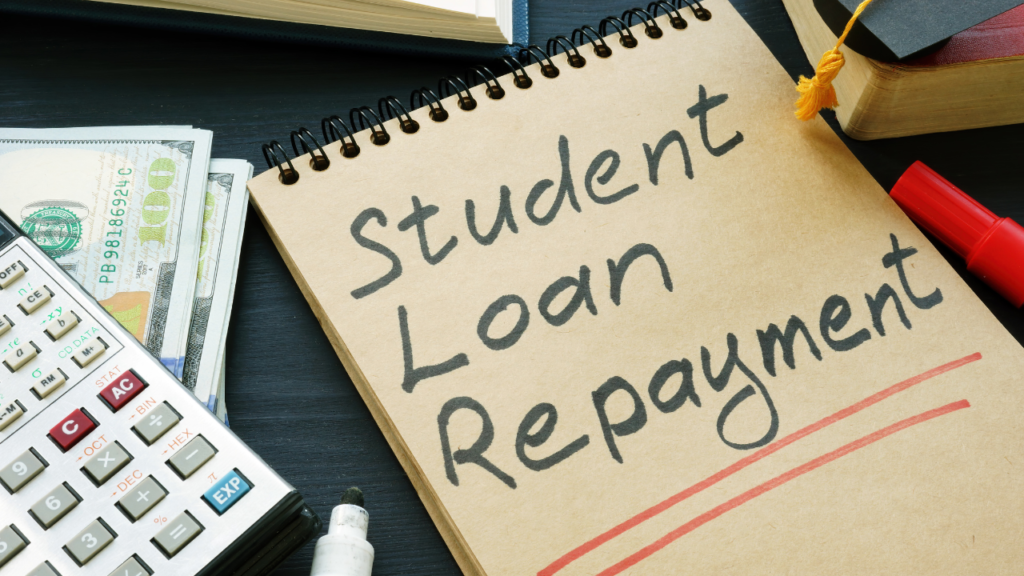
Assessing your current situation
Before developing a strategy for paying off your student loans early, assessing your current situation is important; This involves understanding the current state of your student loans and the terms associated with them. Here are some key steps to follow:
Determine your outstanding student loan balance.
The first step in assessing your current situation is determining your student loans’ total outstanding balance; This can be done by reviewing your most recent loan statement or logging into your student loan account. Knowing the exact amount you owe is important to calculate your payment plan accurately.
Understand your interest rates and payment terms.
Another essential aspect of assessing your student loan situation is understanding the interest rates and payment terms associated with your loans. Interest rates determine the amount of interest charged on your loans over time. Payment terms outline the repayment period and the amount due each month.
Federal student loans have fixed interest rates, meaning the interest rate remains the same for the life of the loan. The government determines the interest rates for federal student loans, which are typically lower than private loans. Private student loans, on the other hand, may have fixed or variable interest rates that can change over time.
It’s important to understand your payment terms, including the repayment period and the amount due each month. Federal student loans offer several repayment options, including standard, graduated, extended, and income-driven repayment plans. Private student loans may have fewer repayment options, but it’s important to understand the terms of your specific loan.
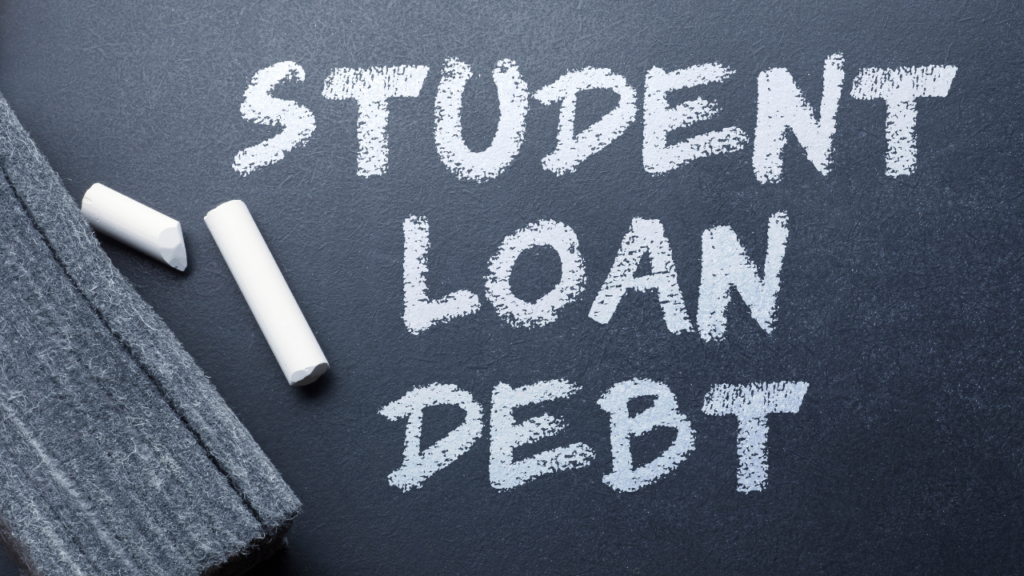
Identify any penalties for early repayment.
Some student loan providers may charge penalties for early repayment of loans. It’s important to review the terms of your loan agreement to determine if any penalties apply. If there are penalties, calculate the costs associated with early repayment to determine if paying off your loans is still financially beneficial.
Strategies for paying off student loans early
Once you’ve assessed your current student loan situation, it’s time to develop a strategy for paying off your loans early. Here are some of the most effective strategies:
Increasing Your Monthly Payments
Increasing your monthly payments is one of the simplest and most effective ways to pay off your student loans early. By paying more than the minimum amount due each month, you’ll reduce the amount of interest that accrues on your loans and pay off your loans faster. Here are some key points to consider when increasing your monthly payments:
Pros and Cons: One of the biggest advantages of increasing your monthly payments is that you’ll pay off your loans faster and save money on interest over the life of your loans. However, increasing your monthly payments may require you to cut back on other expenses, which can be challenging. It’s important to weigh the pros and cons before committing to a higher payment amount.
Calculating how much you need to pay: To determine how much you need to pay each month to accelerate repayment, use an online student loan calculator. Input your loan balance, interest rate, and repayment term to see how much you’ll save by increasing your monthly payments.
Tips for finding extra money: If you’re struggling to find extra money to put towards your student loans, consider the following tips:
- Create a budget: By tracking your expenses and creating a budget, you can identify areas where you can cut back on spending and put that money toward your loans.
- Look for a side hustle: Consider taking on a part-time job or freelancing to earn extra income that can be put toward your loans.
- Refinance your loans: If you have good credit, refinancing your loans may help you get a lower interest rate, saving you money over your loan life.
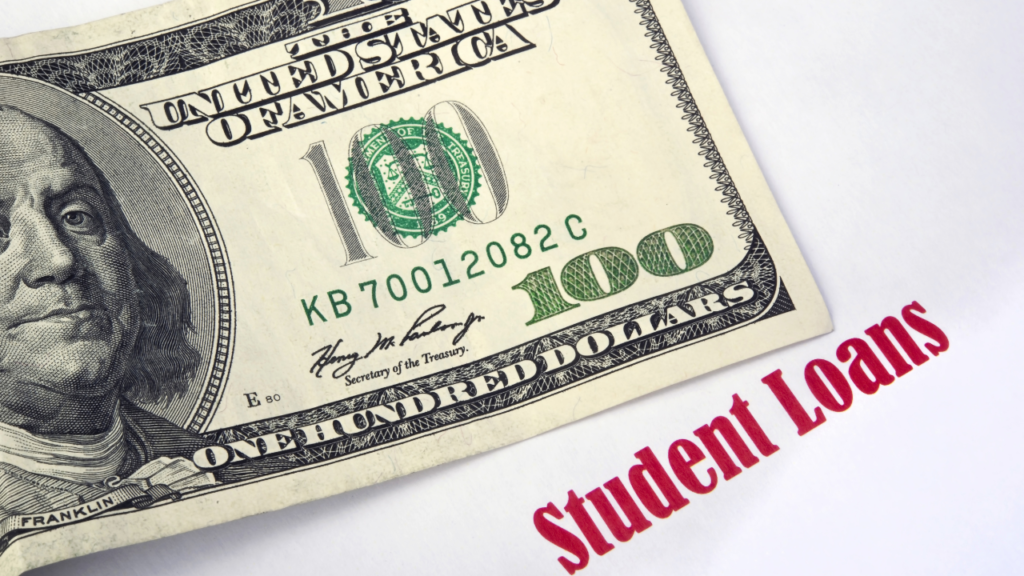
Refinancing Your Student Loans
Refinancing your student loans can be an effective strategy for paying off your loans early. Here are some key points to consider when refinancing your student loans:
- Definition and Benefits of Refinancing Student Loans: Refinancing involves taking out a new loan to pay off your existing student loans. The new loan typically has a lower interest rate, which can save you money over the life of the loan. Refinancing can also simplify your repayment by consolidating multiple loans into one.
- How to Qualify for Refinancing: You’ll typically need good credit and a stable income to qualify for refinancing. Private student loans can be refinanced anytime, but federal student loans can only be refinanced through a private lender. It’s important to note that if you refinance federal loans with a private lender, you’ll lose access to federal loan benefits, such as income-driven repayment plans and loan forgiveness programs.
- Comparing Refinancing Options and Finding the Best Deal: When refinancing your student loans, it’s important to compare different options and find the best deal. Look for lenders that offer low-interest rates, flexible repayment terms, and no fees. You can use online tools to compare rates and terms from multiple lenders. It’s also good to read reviews and check the lender’s reputation before applying.
Making Extra Payments
Benefits of making extra payments on student loans
Student loans can be a heavy burden for many graduates, taking years or even decades to repay. Making additional payments on your student loans can help you pay off your debt faster and save money in interest charges. Here are some of the benefits of making extra payments on your student loans:
- Reducing total interest paid: When you make extra payments on your student loans, you’re reducing the principal balance faster, which means you’ll pay less in interest charges over the life of your loan. For example, let’s say you have $30,000 in student loans at a 5% interest rate with a 10-year repayment term. Your monthly payment would be $318, and you’d pay a total of $10,215 in interest charges over the life of the loan. If you increase your monthly payment by $50, you’d pay off your loans in 9 years and four months and save $1,402 in interest charges.
- Shortening the repayment period: Making extra payments on your student loans can also help you pay off your debt faster. Paying more than the minimum amount due each month will reduce the principal balance more quickly, which means you’ll reach your debt-free goal sooner. For example, if you have $30,000 in student loans with a 10-year repayment term, your monthly payment would be $318. If you increase your monthly payment by $100, you’ll pay off your loans in 7 years and nine months and save $2,515 in interest charges.
- Improving credit score: Making extra payments on your student loans can also help improve your credit score. Your credit score will increase when you pay your bills on time and reduce your debt; This can make it easier for you to qualify for other types of loans in the future, such as a mortgage or car loan.
- Achieving financial freedom: By paying off your student loans early, you’ll free up more money for other financial goals, such as saving for retirement or a down payment on a house. You’ll also have the peace of mind that comes with being debt-free, which can reduce stress and improve your overall quality of life.
Different approaches to making extra payments
There are several different approaches to making extra payments on your student loans. Here are two of the most common methods:
- Lump sum payments: A lump sum payment is a one-time payment made towards your student loans; This could be money from a tax refund, work bonus, or inheritance. Applying a lump sum payment towards your student loans will reduce the principal balance and save money in interest charges. For example, let’s say you have $30,000 in student loans with a 5% interest rate and a 10-year repayment term. If you receive a $1,000 tax refund and apply it towards your loans, you’ll pay off your loans in 8 years and six months and save $1,128 in interest charges.
- Biweekly payments: Biweekly payments involve making half your monthly payment every two weeks. This results in making 26 half payments per year, equivalent to 13 total monthly payments. Making biweekly payments will pay off your loans faster and save money in interest charges. For example, let’s say you have $30,000 in student loans with a 5% interest rate and a 10-year repayment term. Your monthly payment would be $318. If you switch to biweekly payments, you’ll pay $159 every two weeks. Doing this will pay off your loans in 9 years and one month and save $1,236 in interest charges.
Tips for staying motivated and on track with extra payments
Making extra payments on your student loans can be a challenging and long-term goal. Here are some suggestions for staying motivated and on track with your repayment plan:
- Setting specific goals: It’s important to set clear goals for yourself when making extra payments on your student loans. For example, set a goal to pay off your loans in 5 years or to save $5,000 in interest charges.
- Creating a repayment plan: Creating a repayment plan can help you stay on track with your goals; This might include calculating how much you need to pay each month to reach your goal, identifying sources of extra income, and creating a timeline for when you want to achieve your goal.
- Tracking progress and celebrating milestones: It’s important to track your progress and celebrate milestones along the way; This could include monitoring your loan balance, interest charges, and repayment term. You might also celebrate when you reach a certain milestone, such as paying off 25% or 50% of your loans.
- Seeking support from family, friends, or a financial advisor: Seeking support from others can help you stay motivated and on track with your repayment plan; This might include talking to family, friends, or a financial advisor about your goals and progress and asking for their support and encouragement.
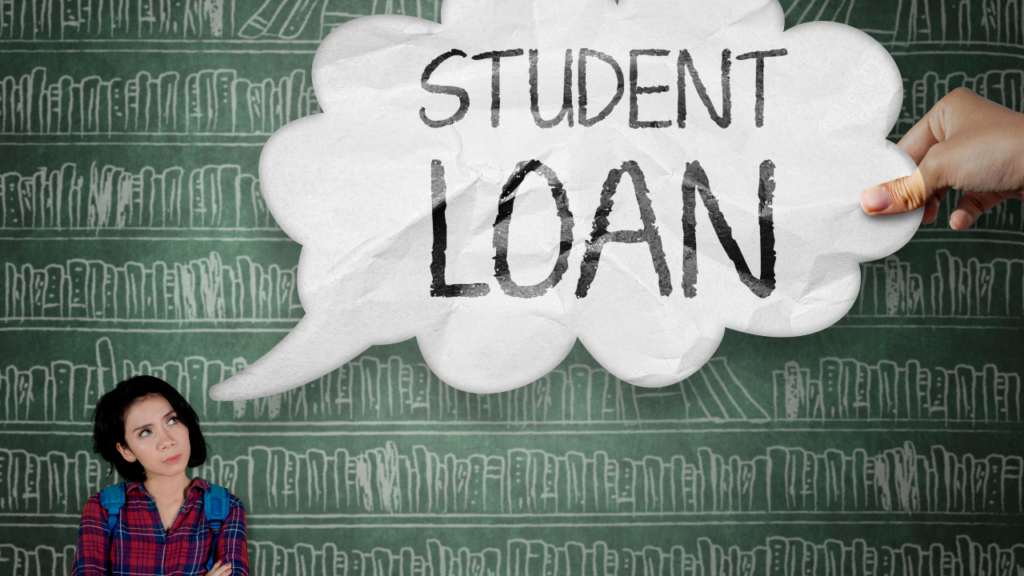
Maintaining good financial habits
Paying off student loans early requires making extra payments and adopting good financial habits that can help you save money and free up cash for loan repayment. This section will discuss some budgeting tips, strategies for reducing expenses, and the importance of building an emergency fund.
Budgeting tips to free up extra cash for student loan repayment
Creating a budget is one of the best ways to free up extra cash for student loan repayment. A budget is a spending plan that helps you keep track of your income and expenses. By creating a budget, you can identify areas where you can cut back on expenses and redirect that money toward your student loans. Here are some budgeting tips to help you free up extra cash for loan repayment:
- Track your expenses: Start by tracking your expenses for a month or two; This will help you see where your money is going and identify areas where you can cut back.
- Identify unnecessary expenses: Once you’ve tracked your expenses, look for areas where you can cut back; This might include eating out less, canceling subscriptions you don’t use, or reducing your entertainment expenses.
- Reduce your housing expenses: Housing is typically the most significant expense for most people. Consider downsizing to a smaller apartment or house or getting a roommate to split the cost of rent.
- Reduce your transportation expenses: Transportation is another major expense. Consider using public transportation, carpooling, or biking to work to save on gas and maintenance costs.
- Cook at home: Eating out can be expensive. Consider cooking at home more often and bringing your lunch to work.
- Negotiate bills: Call your service providers and ask if there are any discounts or promotions you can take advantage of; This might include negotiating your cable or internet bill.
Strategies for reducing expenses and saving money
In addition to budgeting, there are other strategies you can use to reduce expenses and save money. Here are a few:
- Shop for deals: Look for deals and discounts when shopping for groceries, clothes, and other items; This might include using coupons or shopping during sales.
- Use cashback apps: Cashback apps like Rakuten and Ibotta can help you save money on purchases.
- Use energy-efficient appliances: Energy-efficient appliances can help you save money on your energy bill.
- Use generic brands: Generic brands are often cheaper than name-brand products and can be just as good.
- Buy used items: Consider buying used items, such as furniture or clothes, to save money.
The importance of building an emergency fund
Building an emergency fund is important for everyone, but it’s important when paying off student loans. An emergency fund is a savings account that you can use in case of an emergency, such as a job loss or unexpected medical expenses. An emergency fund can help you avoid debt or relying on credit cards to cover unexpected expenses.
To build an emergency fund, start by setting a savings goal. Aim to save three to six months’ worth of living expenses; This might sound like a lot, but it’s important to have enough money saved to cover unexpected expenses.
To save money for your emergency fund, consider automating your savings; This means setting up automatic transfers from your checking account to your savings account each month. You can also redirect money from your budget towards your emergency fund.
FAQ
Is it worth it to pay off student loans early?
Yes, it can be worth it to pay off student loans early. By paying off your loans early, you can save on interest and free up cash for other expenses, such as retirement savings or buying a home.
How much extra should I pay monthly to repay my student loans early?
The amount you should pay each month to pay off your student loans early depends on your situation. You can use a student loan payoff calculator to determine how much extra you should pay each month to pay off your loans early.
Should I pay off my highest-interest-rate student loans first?
Yes, paying off your highest interest-rate student loans is generally a good idea; This will save you money on interest over the life of your loans.
Should I refinance my student loans to get a lower interest rate?
Refinancing your student loans can be an excellent way to get a lower interest rate and save money on interest over the life of your loans. However, be sure to consider the potential downsides, such as losing access to federal loan benefits and potentially extending the life of your loans.
Should I make extra payments on my student loans or invest the money instead?
This depends on your situation. If your student loan interest rate is high, it may be a good idea to focus on paying off your loans early. However, you may be better off investing the money if your interest rate is low. Consider speaking with a financial advisor to determine your best course of action.
Last thought
In conclusion, paying off your student loans early can have many benefits. By making extra payments, you can save money on interest over the life of your loans and free up cash for other expenses. You can also reduce your stress and improve your financial well-being by becoming debt-free sooner.
Some of the key benefits of paying off your student loans early include:
- Saving money on interest
- Reducing your debt-to-income ratio
- Improving your credit score
- Having more cash available for other expenses
- Reducing stress and improving your financial well-being
To stay on track with repayment, it’s important to create and stick to a plan. This plan should include making extra payments whenever possible, budgeting carefully to free up extra cash for repayment, and considering refinancing your loans to get a lower interest rate. It would help if you also considered building an emergency fund to protect yourself from unexpected expenses and avoid taking on new debt while paying off your student loans.
Finally, remember that paying off student loans early is a marathon, not a sprint. It may take years to become debt-free, but with patience and discipline, you can achieve your goal and enjoy the many benefits of debt-free. Stay motivated, stay focused, and keep working toward your financial goals.
